Resources Listing Page VAW Page
Resources Listing Page VAW Page
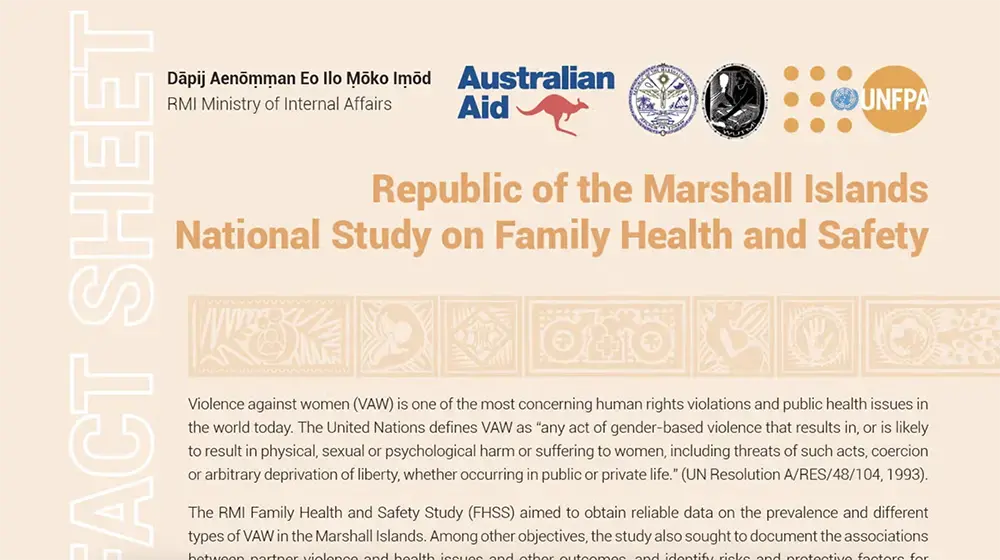
25 March 2014
Fact Sheet
Republic of the Marshall Islands National Study on Family Health and Safety Fact Sheet
This Family Health and Safety Study (FHSS) was initiated through the Republic of the Marshall Islands (RMI) Ministry of Internal Affairs and conducted by Women United Together Marshall Islands (WUTMI). Though not the first study on family violence in the country, it is the most comprehensive. This fact sheet presents the main facts regarding violence against women in the Marshall Islands.
Read story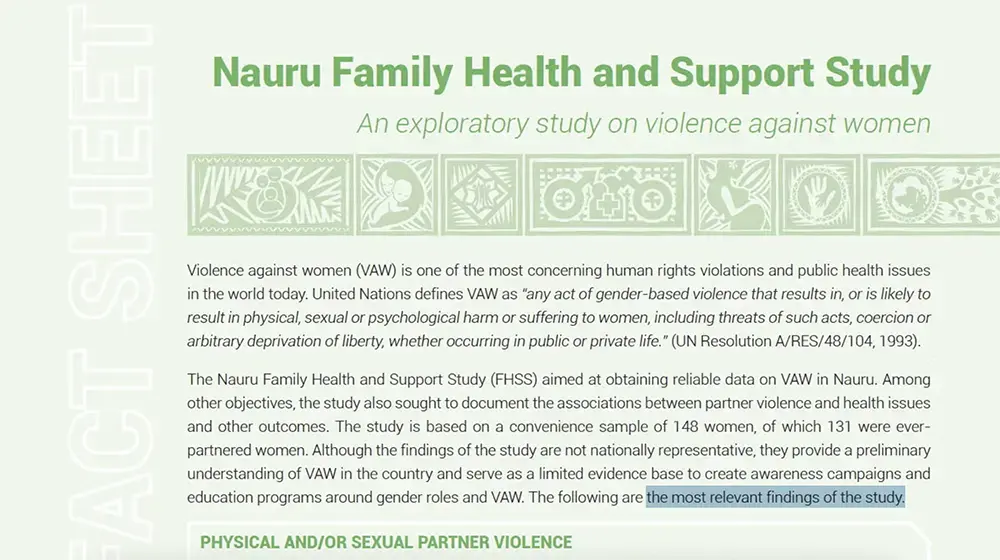
25 March 2014
Fact Sheet
Nauru Family Health and Support Study Fact Sheet
The Nauru Family Health and Support Study aimed to obtain reliable information on violence against women (VAW), its characteristics, and consequences in Nauru. This fact sheet presents the most relevant findings of the study.
Read story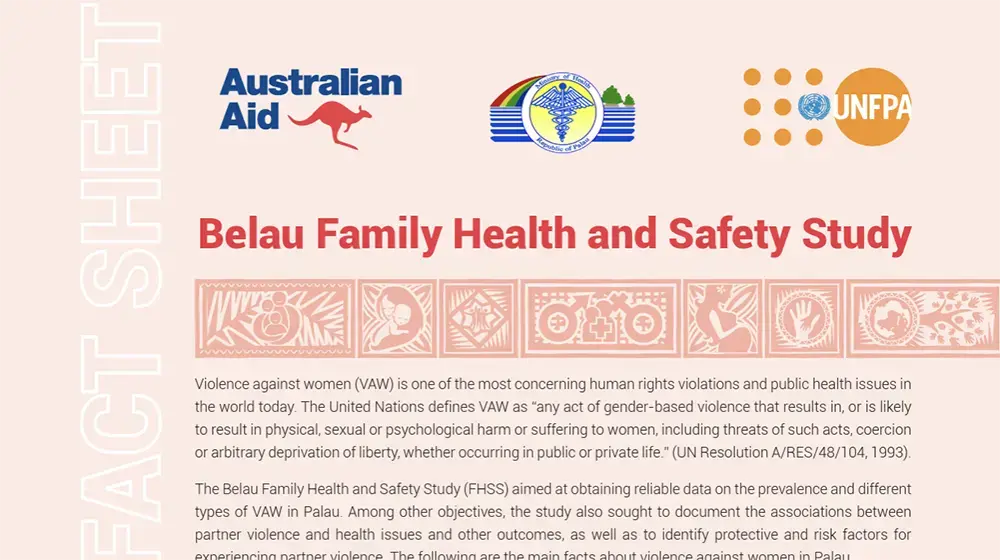
01 June 2018
Resource
Belau (Palau) Family Health and Safety Study Fact Sheet
The Belau Family Health and Safety Study aimed to obtain reliable data on the prevalence and types of violence against women in Palau. This fact sheet presents the main facts about violence against women in Palau.
Read story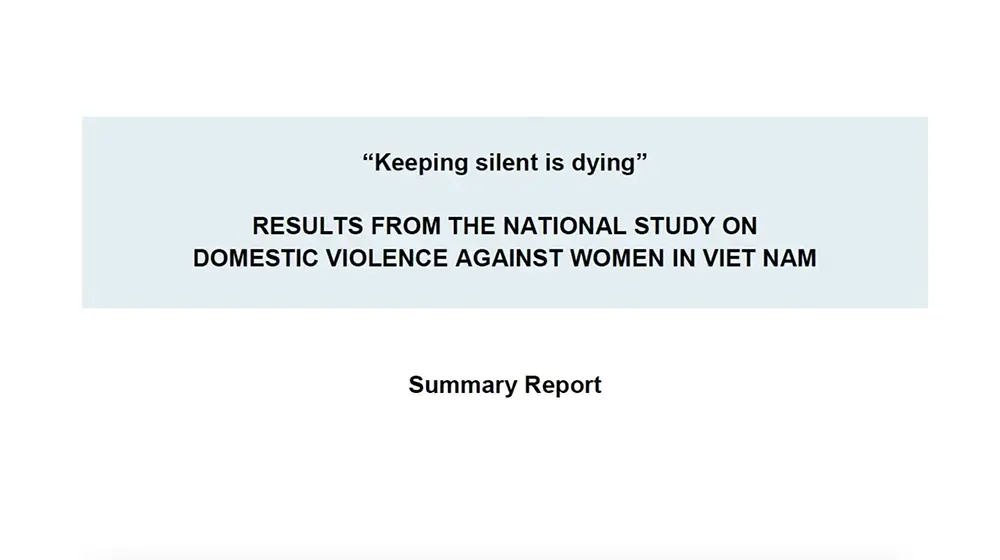
01 January 2010
Publication
Summary Report: National Study on Domestic Violence against Women in Viet Nam 2010
In 2010, the National Study on Domestic Violence against Women in Viet Nam was undertaken as part of the United Nations - Government of Viet Nam Joint Programme on Gender Equality as a joint endeavour between the General Statistics Office. This report presents a summary of the findings of the National Study on Domestic Violence against women in Viet Nam.
Read story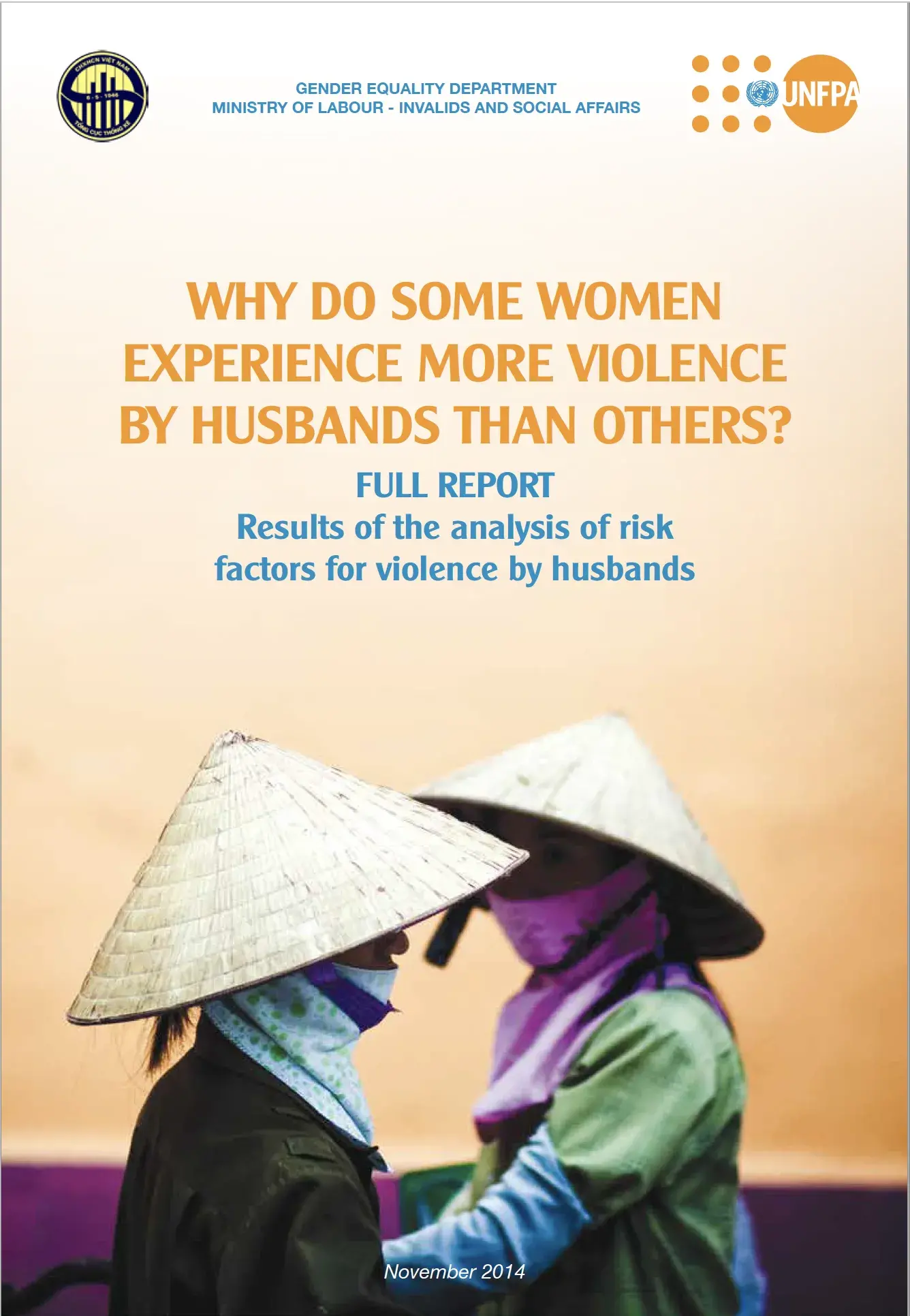
01 November 2014
Publication
Why do some women experience more violence by husbands than others? (Viet Nam full report)
In 2010, the National Study on Domestic Violence against Women in Viet Nam was undertaken as part of the United Nations - Government of Viet Nam Joint Programme on Gender Equality as a joint endeavour between the General Statistics Office of Viet Nam. This report should be seen as a supplement, or ‘Part 2’, of the report “Keeping silent is dying” - Results from the National Study on Domestic Violence against Women in Viet Nam.
Read story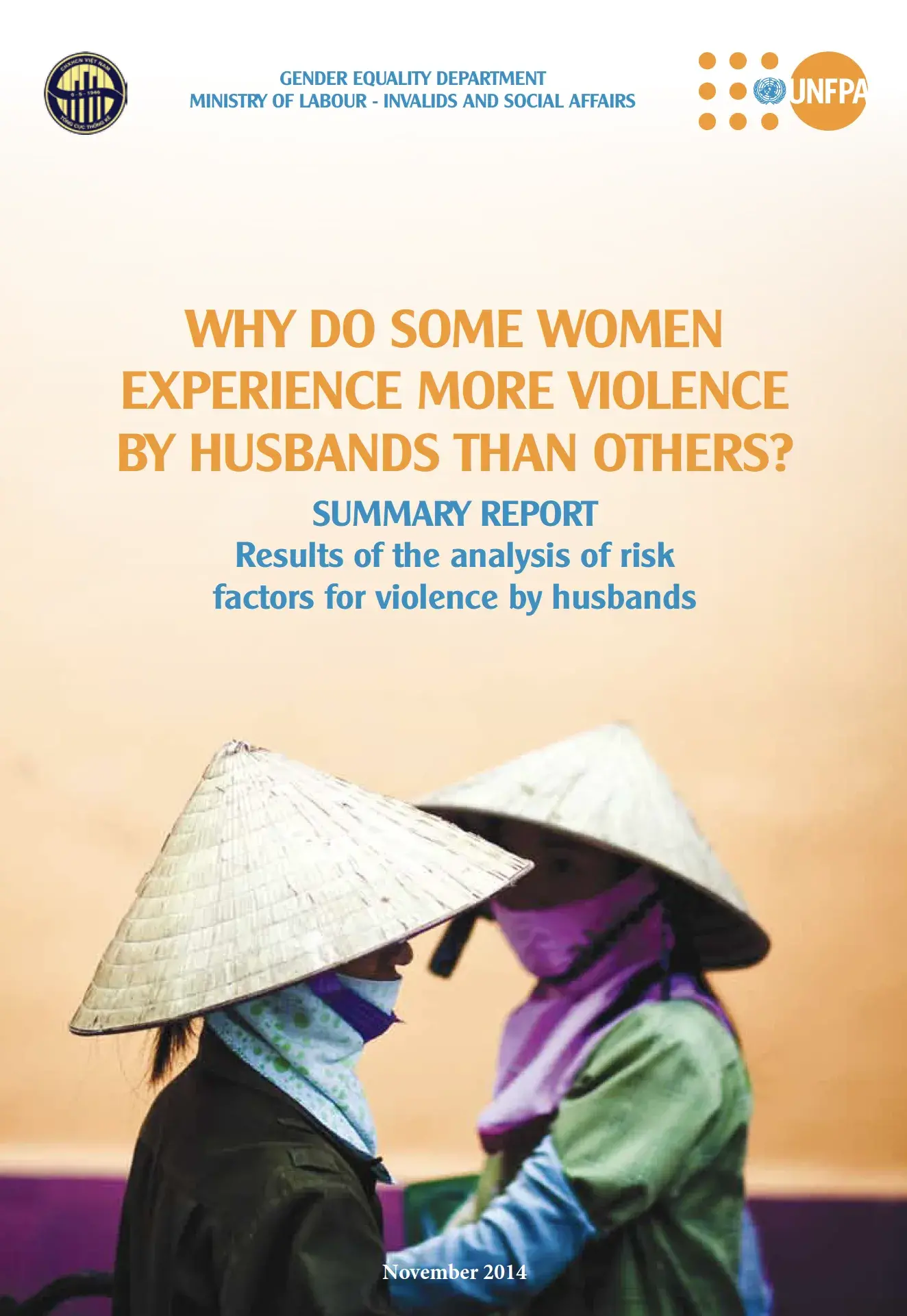
01 November 2014
Publication
Why do some women experience more violence by husbands than others? (Viet Nam summary report)
In 2010, the National Study on Domestic Violence against Women in Viet Nam was undertaken as part of the United Nations - Government of Viet Nam Joint Programme on Gender Equality as a joint endeavour between the General Statistics Office. This summary report should be seen as a supplement, or ‘Part 2’, of the report “Keeping silent is dying” - Results from the National Study on Domestic Violence against Women in Viet Nam. This summary report reflects the main findings of the risk factor analysis in the full secondary analysis report, without presenting details of the statistical techniques nor detailed statistical findings.
Read story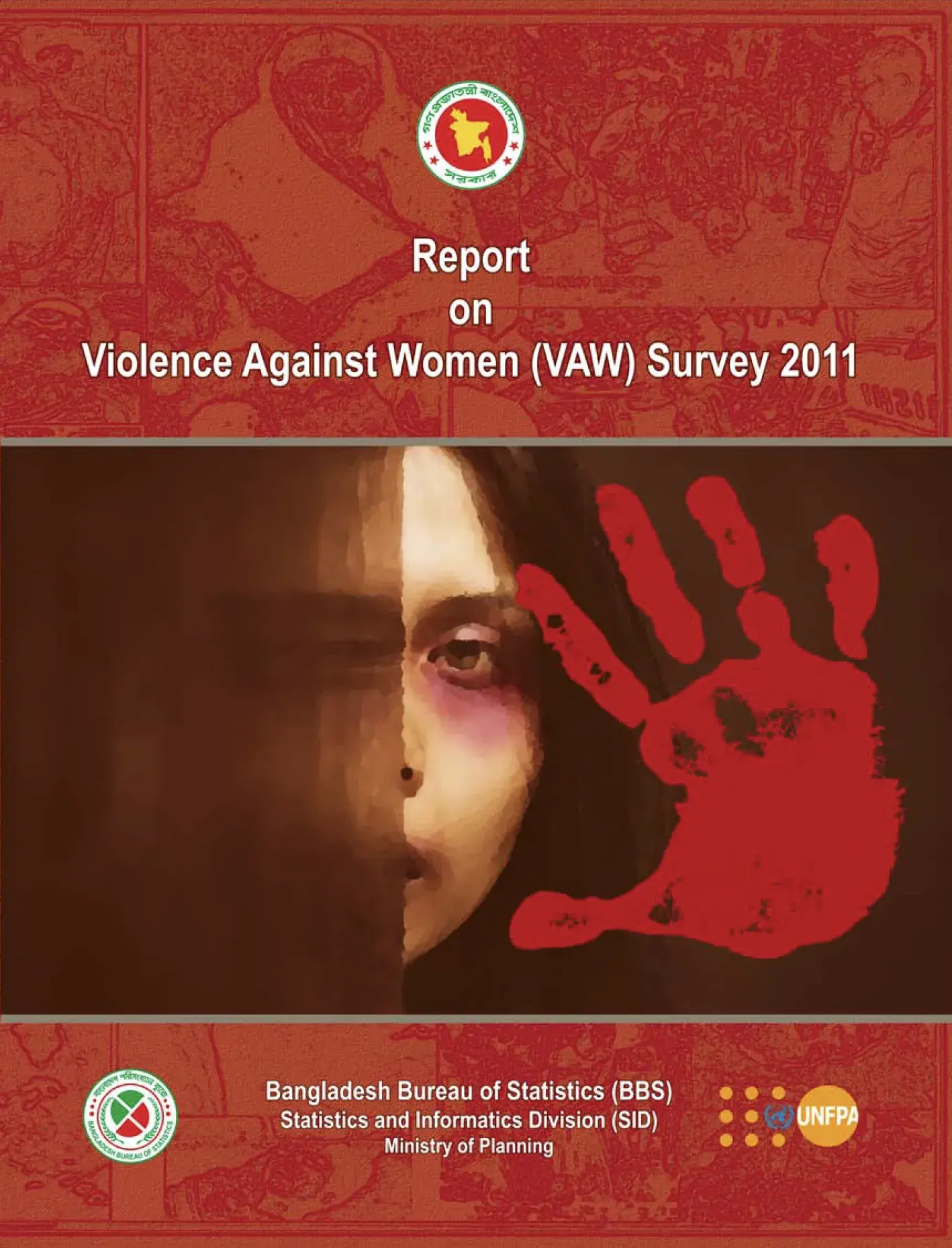
01 December 2013
Publication
Report on Bangladesh Violence Against Women Survey 2011
The main objective of the survey is to generate official statistics on the prevalence of different forms of violence against women in Bangladesh.
Read story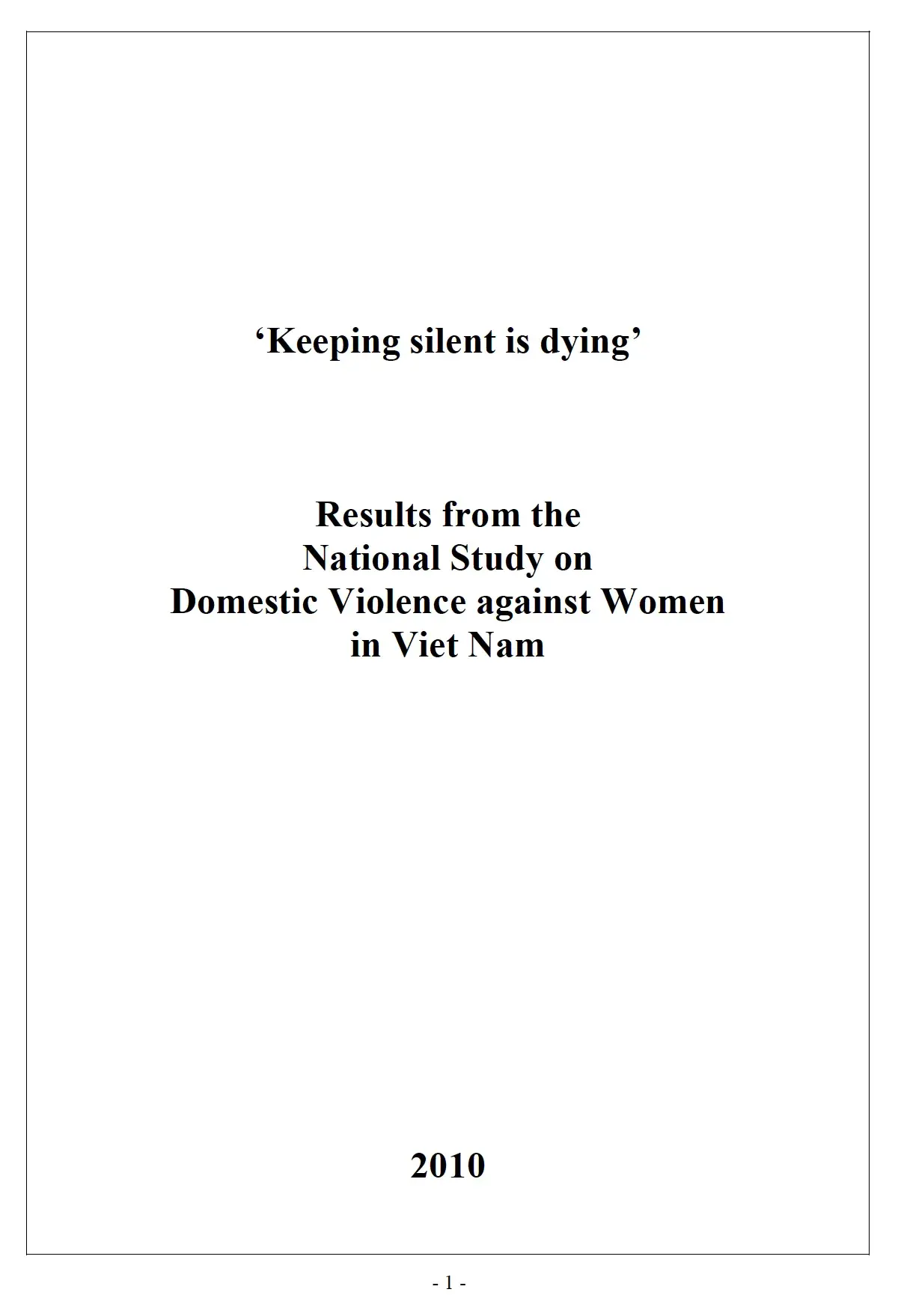
01 January 2010
Publication
National Study on Domestic Violence against Women in Viet Nam 2010: full report
This National Study on Domestic Violence against Women in Viet Nam 2010 report is the first to provide nationally representative data focused on domestic violence in Viet Nam.
Read story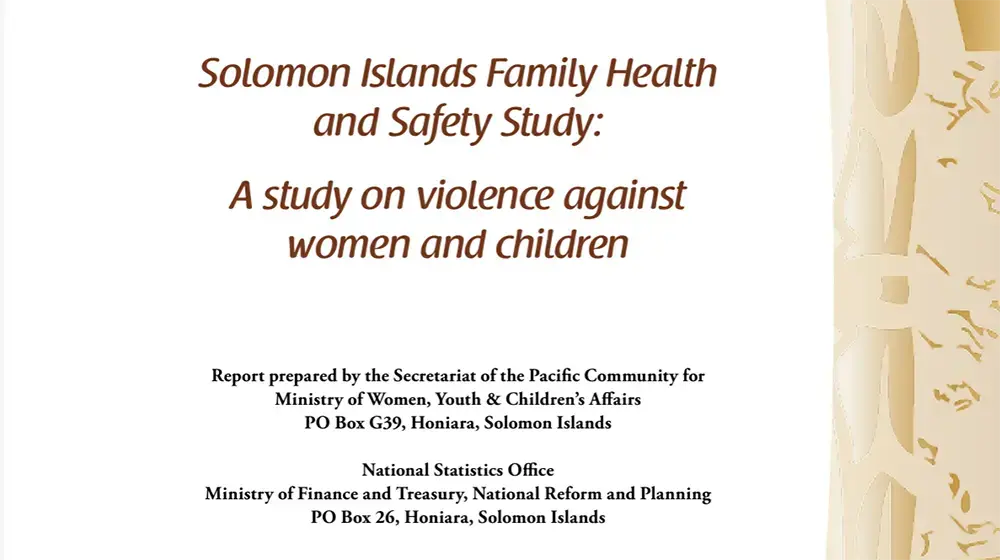
01 January 2009
Publication
Solomon Islands Family Health and Safety Study
This report of the Solomon Islands Family Health and Safety Study analyzes data from the first nationally representative research on violence against women and children in the Solomon Islands. The study, which replicates the WHO Multi-Country Study on Women’s Health and Domestic Violence against Women, was designed to: estimate the prevalence of physical, sexual and emotional violence against women, with particular emphasis on violence by intimate partners; assess the association of partner violence with a range of health outcomes; identify factors that may either protect women against, or put them at risk of partner violence; document the strategies and services that women use to cope with violence by an intimate partner; and assess the association of partner violence with abuse against children.
Read story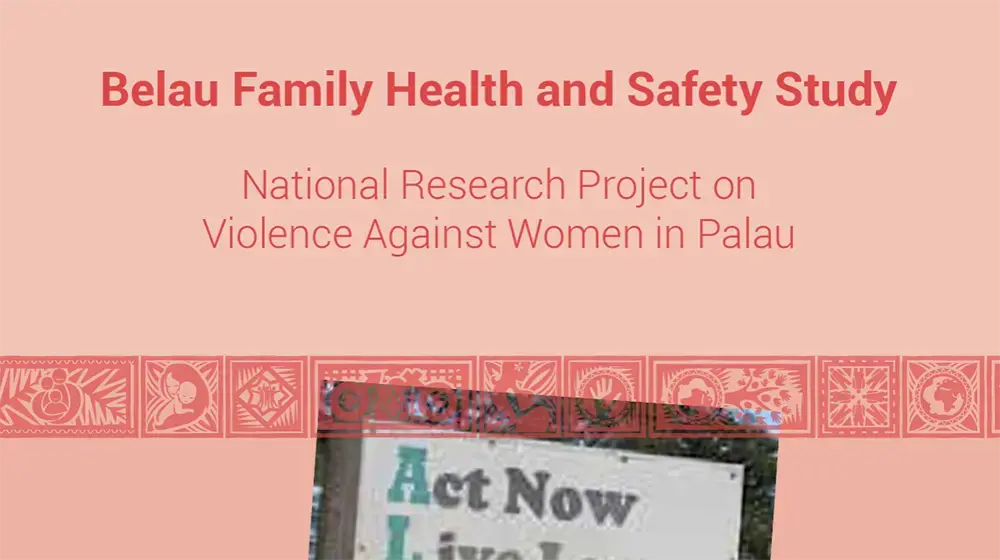
01 October 2014
Publication
Belau (Palau) Family Health and Safety Study
The Belau Family Health and Safety Study (FHSS) aimed at obtaining reliable data on the prevalence and types of violence against women (VAW) in Palau. The study also sought to document the associations between partner violence and health issues and other outcomes, as well as to identify risk and protective factors for partner violence. The Ministry of Health carried out the study with financial support from the Australian Government’s Department of Foreign Affairs and Trade (DFAT), and financial and technical support from the United Nations Population Fund (UNFPA). The methodology of the study builds on the WHO Multi-Country Study on Women’s Health and Domestic Violence Against Women, which combines quantitative and qualitative components. The WHO methodology adheres to international ethical and safety standards for research on VAW and ensures data comparability across countries.
Read story